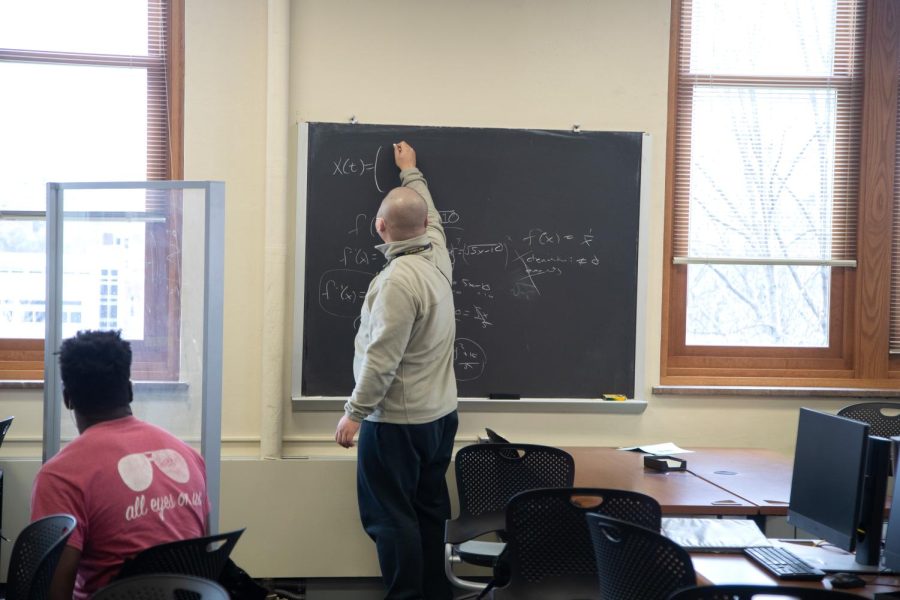Opinion | Final projects leave students better off. Here’s why.
The end of the semester can be hard. Final projects make it better for students.
University of Iowa students study in the Math Tutorial Lab at MacLean Hall on Thursday, March 31, 2022.
November 29, 2022
Now that Thanksgiving break is over, finals are just around the corner, and University of Iowa students are racing to this semester’s finish line.
The period between the end of midterm exams and finals week is one of great stress for all stude nts, regardless of what they study or year of school they’re in.
Though final coursework for UI students may vary based on their area of study, the most common format for finals comes either through a final exam or a final project.
Whether a final exam or final project is presented at the end of the semester is subject to many factorssuch as course content or class size. However, there are a few reasons as to why final projects are more beneficial for student learning and student performance.
Naomi Gresyer, UI associate professor of American studies; English; and gender, women’s, and sexuality studies explains her decision-making for implementing final projects in her classes as opposed to final exams.
“I do think that breaking [the final project] into chunks and letting students apply learning in a context that matters to them does lead to their taking more away from class, and, usually — having more fun in it,” Greyser said. “It’s also more fun for me.”
Final projects better demonstrate student learning, and allow for greater levels of creativity and individuality. They also provide opportunities for real-world application of course content. As Greyser also said, these projects can make work more enjoyable for the professors or teaching assistants that grade student work.
“A lot of my research on creativity and inquiry at the university shows that when we combine skills-based learning — where students get to do things— with text-based learning, where students read and write things, they enhance each other,” Greyser said.
Final projects definitely allow for this said level of learning enhancement more so than a traditional exam might be able to. Additionally, diversifying the learning experience makes students more immersed in their course curriculum. Rather than overloading students with the end-all be-all of an exam, final projects have a larger time-frame and typically more opportunity for points to be earned.
As a student, I relate to the challenges and stresses that come along with final exams. Final exams create a lot of pressure, especially when the academic stakes are much higher. According to research.com, 45 percent of American college students claim to experience “more than average stress,” a number that heightens during finals week.
Greyser strives to achieve learning diversification in her classroom and provides her students with different opportunities to obtain the grades they desire.
“I use an exam midway through the semester as a way to ground people’s knowledge base. I have come to realize that I can use both exams and final projects in my class and let people apply the knowledge they’ve learned in the final project,” Greyser said.
Though final projects may be challenging to assign for classes of larger sizes — such as a gen-ed course — it would do no harm for a greater number of UI professors and administrators to explore the ways in which they can introduce some alternatives for students, rather than just exams, similar to the strategy Greyser uses.
Considering the pressure that college students face at the end of each semester, final projects may be one way to remove some of the stress while also better supporting student learning.
Columns reflect the opinions of the authors and are not necessarily those of the Editorial Board, The Daily Iowan, or other organizations in which the author may be involved.



